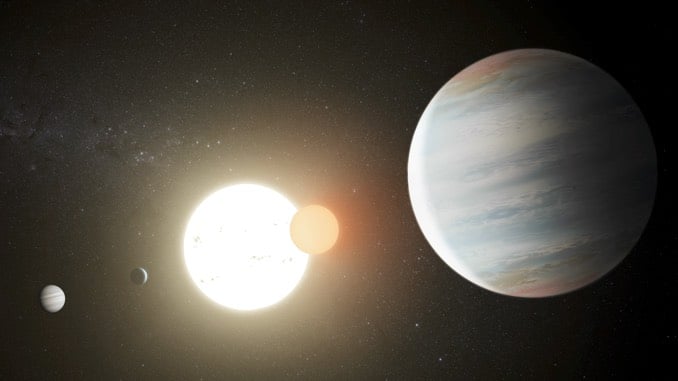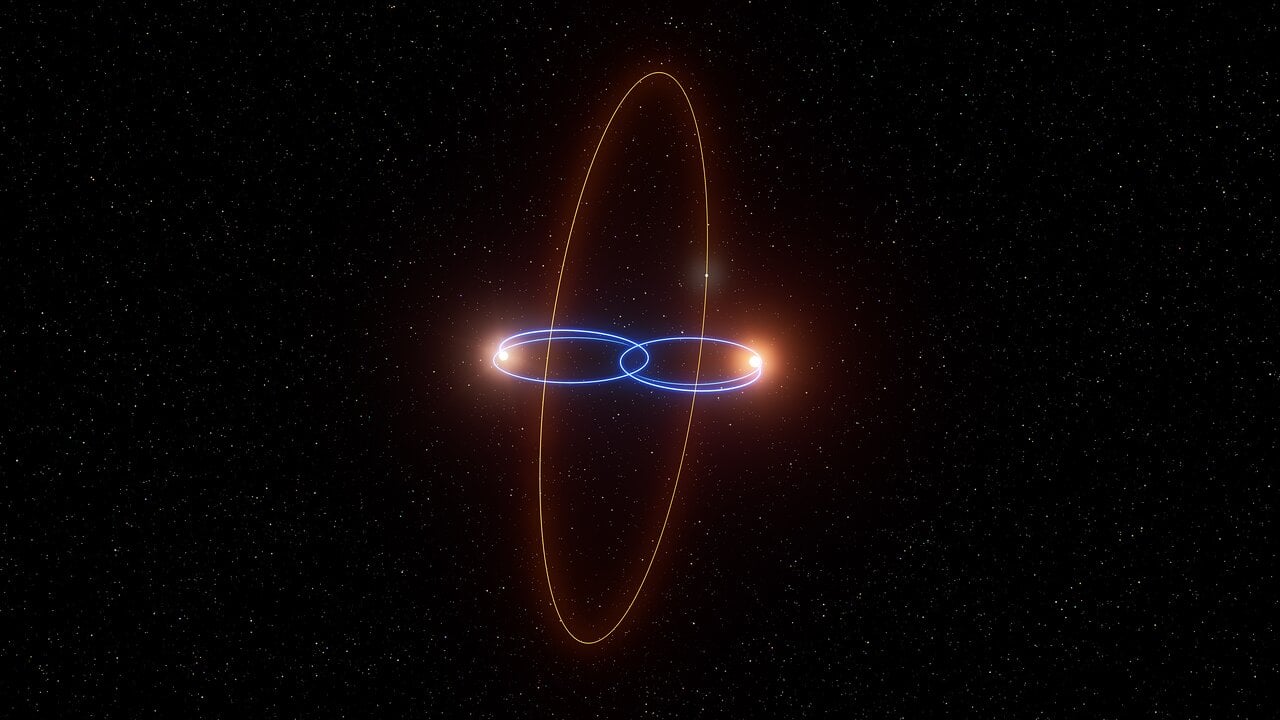Planetary systems orbiting binary stars represent a fascinating area of study where planetary orbits are complex around the gravitational influence of two stars rather than one. These systems come in two main types: circumbinary planets that orbit both stars from a distance, and circumstellar planets that closely orbit just one star while remaining distant from its companion.
The Kepler mission was launched back in March 2009 and since, has discovered numerous such systems, revealing that planets in binary star systems typically align their orbits with the binary plane and must somehow navigate dynamically unstable inner regions. These complex gravitational environments create unique conditions that can result in dramatic orbital eccentricities and extreme seasonal variations.
Astronomers sometimes refer to these rare planets orbiting binary star systems as Tatooine worlds as a reference to Star Wars. These systems usually exhibit chaotic behaviour where the gravitational pull from both stars creates regions of instability where planets cannot maintain stable orbits. There are other zones which are stable and planets can persist for billions of years. As the stars orbit their common center of mass, they produce time-varying gravitational fields that can excite planetary eccentricities, induce orbital precession, and even eject planets from the system entirely.
 Illustration of a binary star system with planets. The gravitational interactions of systems like these can be chaotic (Credit : NASA/JPL-Caltech/T. Pyle)
Illustration of a binary star system with planets. The gravitational interactions of systems like these can be chaotic (Credit : NASA/JPL-Caltech/T. Pyle)
Such a system has been found with exoplanet 2M1510 (AB) b that orbits a pair of brown dwarfs in the constellation Libra. This discovery is significant for two reasons: it's only the second identified eclipsing brown dwarf pair but more interestingly, at least in my opinion, is that the exoplanet's orbit is perpendicular to its host stars' orbital plane—the first of its kind ever found. Thomas Baycroft from the University of Birmingham led this groundbreaking research which has been published in Science Advances.
"I am particularly excited to be involved in detecting credible evidence that this configuration exists." - Thomas Baycroft, PhD student at the University of Birmingham, UK
The team discovered this unusual planet while studying the orbital parameters of two brown dwarfs using the European Southern Observatory's Very Large Telescope in Chile. Originally detected in 2018 through the SPECULOOS (Search for habitable Planets EClipsing ULtra-cOOl Stars) program, the brown dwarf pair known as 2M1510 showed unexpected orbital perturbations that couldn't be explained by their interaction alone.
Upon analyzing these irregular movements, the researchers concluded that only one scenario could account for the observed data: the presence of an exoplanet orbiting perpendicular to the binary's orbital plane. As Baycroft explained, after examining all possible explanations, they determined that a planet on a polar orbit around this binary system was the only solution consistent with their observations.
"The discovery was serendipitous, in the sense that our observations were not collected to seek such a planet, or orbital configuration. As such, it is a big surprise. Overall, I think this shows to us astronomers, but also to the public at large, what is possible in the fascinating Universe we inhabit." - Co-author Amaury Triaud from the University of Birmingham.
Source :"Big surprise": astronomers find planet in perpendicular orbit around pair of stars
 Universe Today
Universe Today

.jpg) Kepler in Astrotech's Hazardous Processing Facility (Credit : NASA/Troy Cryde)